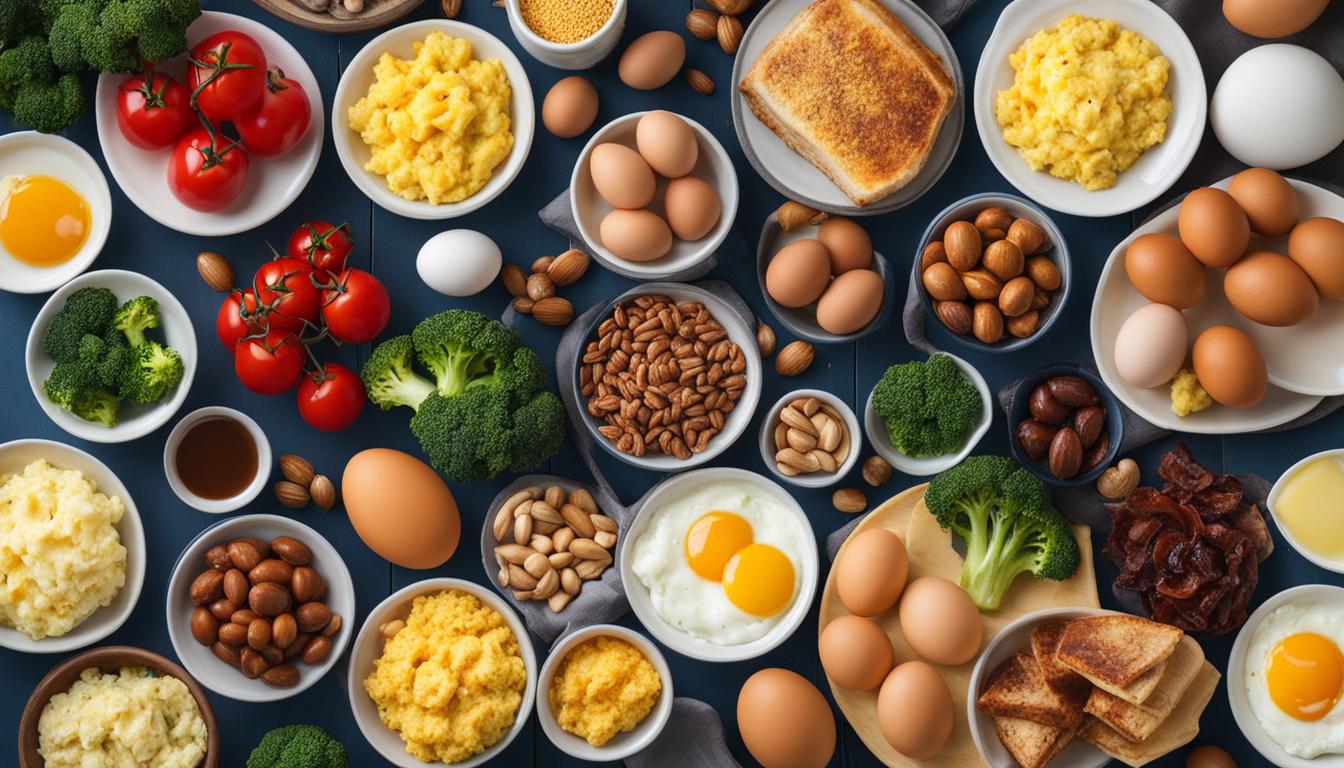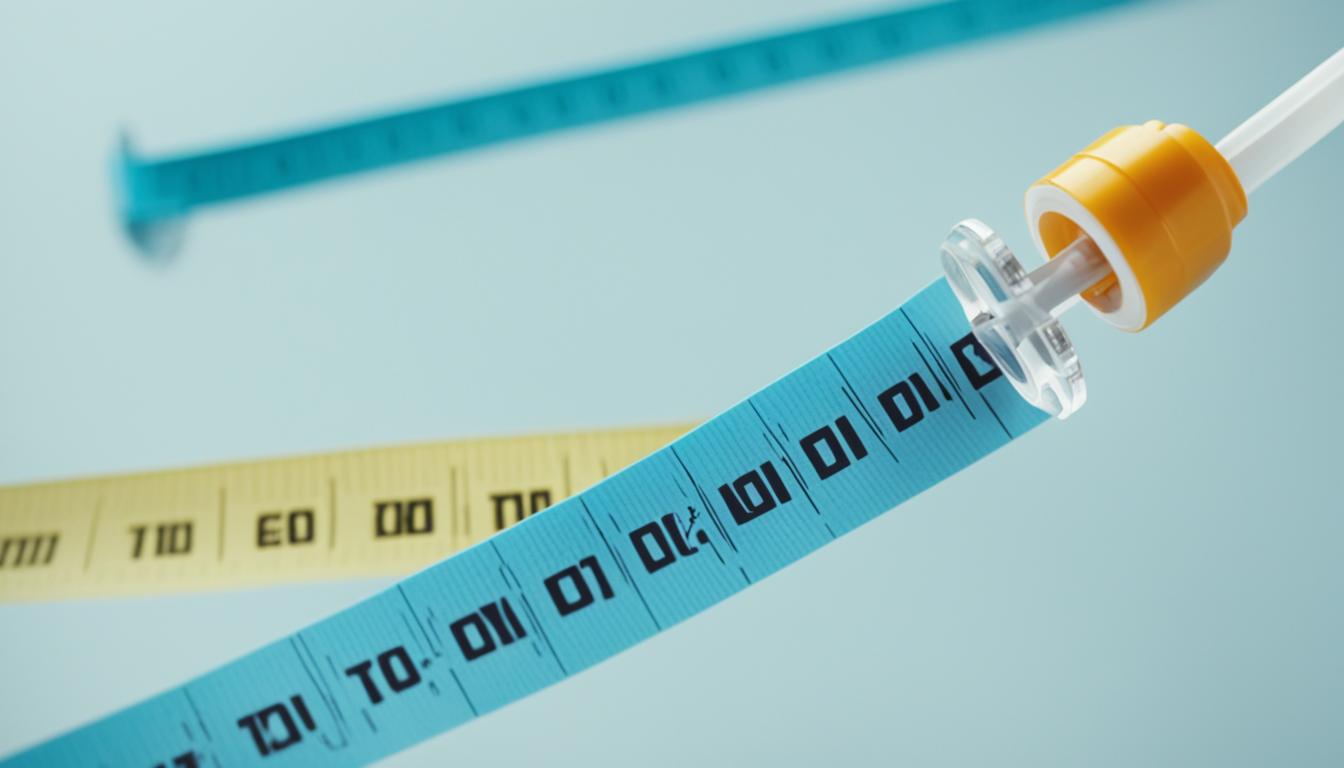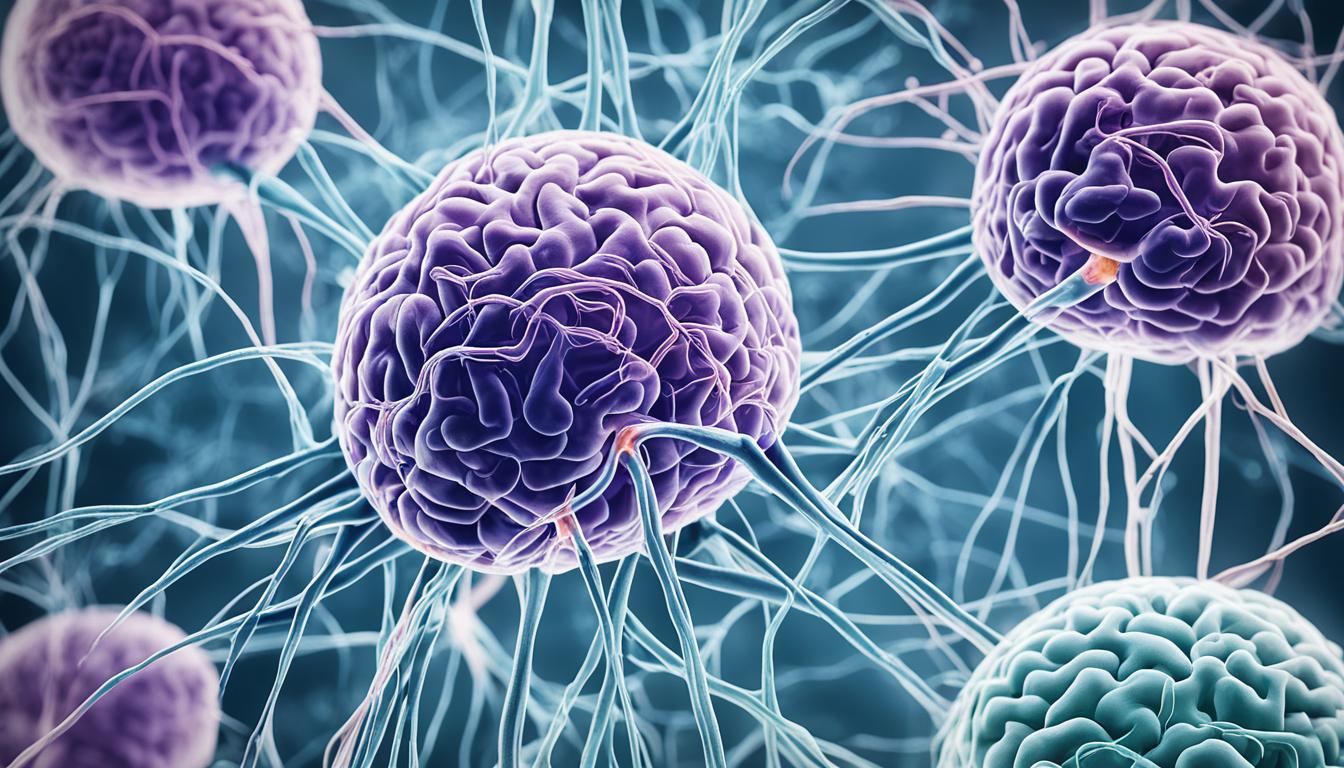Eggs have long been a staple in many people’s diets, but there has been ongoing debate about their impact on prostate health. Some studies suggest that consuming eggs, particularly egg yolks, may increase the risk of prostate cancer. A 2022 study from the Cleveland Clinic found that men with higher levels of choline, a nutrient found in egg yolks, had a nearly doubled risk of lethal prostate cancer. Additionally, a parasitic worm called Schistosoma haematobium, commonly found in Africa, can contribute to prostate inflammation and potentially increase the risk of prostate cancer. While more research is needed to fully understand the precise mechanisms, it is important to consider the potential risks when consuming eggs for prostate health.
Key Takeaways:
- Some studies suggest that consuming eggs, particularly egg yolks, may increase the risk of prostate cancer.
- Men with higher levels of choline, a nutrient found in egg yolks, had a nearly doubled risk of lethal prostate cancer.
- A parasitic worm called Schistosoma haematobium, commonly found in Africa, can contribute to prostate inflammation and potentially increase the risk of prostate cancer.
- More research is needed to fully understand the precise mechanisms of how eggs may impact prostate health.
- It is important to consider the potential risks when consuming eggs for prostate health.
The Link Between Eggs and Prostate Cancer
Several studies have examined the association between egg consumption and prostate cancer risk. Research from Harvard School of Public Health and the University of California/San Francisco found that men who consumed 2.5 or more eggs per week had an 81% increased risk of lethal prostate cancer compared to those who consumed less than half an egg per week. The study theorized that the high levels of choline and cholesterol in eggs, particularly in the yolks, could contribute to the development and progression of prostate cancer. Choline has been shown to promote cancer growth, and cholesterol accumulation in aging and malignant cells may act as a precursor for promoting cancer growth. These findings suggest that excessive egg consumption, especially in the presence of other risk factors, may be detrimental to prostate health.
We have found that men who consume 2.5 or more eggs per week have an 81% greater chance of developing lethal prostate cancer compared to those who consume less than half an egg per week. This highlights the potential link between egg consumption and prostate cancer risk.
The elevated risk may be attributed to the high levels of choline and cholesterol found in eggs, particularly in the yolks. Choline has been shown to promote cancer growth, potentially contributing to the development and progression of prostate cancer. Additionally, cholesterol accumulation in aging and malignant cells can serve as a precursor for promoting cancer growth. Therefore, excessive egg consumption, especially in individuals with other risk factors, should be approached with caution to maintain optimal prostate health.
The Role of Choline and Cholesterol
In the discussion of eggs and prostate cancer, two important components that have been implicated are choline and cholesterol. Choline is a nutrient found abundantly in eggs, particularly in the yolk. Studies have shown that higher concentrations of choline in the blood are associated with an increased risk of prostate cancer. Choline has been found to influence cancer growth in various cells, including the prostate, and may promote the growth of tumors in this gland.
Furthermore, the high cholesterol content in eggs is another factor that has been linked to prostate cancer risk. Cholesterol has been shown to accumulate in aging and malignant cells, potentially acting as a precursor for promoting cancer growth. As cholesterol metabolism slows down with age, the presence of excess cholesterol in the body, which can be obtained from dietary sources like eggs, may contribute to an increased risk of prostate cancer.
These findings highlight the potential role of choline and cholesterol in the development and progression of prostate cancer, particularly in individuals who have a high consumption of eggs. Understanding the impact of these components on prostate health is crucial for making informed dietary choices.
The Role of Choline:
Choline is an essential nutrient that plays a vital role in various biological functions, including cell membrane integrity, nerve function, and metabolism. While it is necessary for normal bodily functions, excessive choline intake, especially from dietary sources like eggs, may have implications for prostate health. Studies have demonstrated a correlation between higher choline concentrations in the blood and an increased risk of developing prostate cancer.
Choline and Cancer Growth:
Choline has been found to influence cancer growth by promoting the proliferation and survival of cancer cells. In the case of prostate cancer, higher choline levels may contribute to the growth and progression of tumors within the prostate gland. The precise mechanisms by which choline exerts its effects on cancer cells are still being investigated, but the evidence suggests that it plays a significant role in cancer development.
The Role of Cholesterol:
Cholesterol is a lipid molecule that is vital for the production of hormones, cell membranes, and other essential substances in the body. However, an accumulation of cholesterol in aging and malignant cells has been associated with cancer progression. As cholesterol metabolism slows down with age, the presence of high blood cholesterol levels, which can be influenced by dietary intake, can act as a precursor for promoting cancer growth.
Cholesterol and Cancer Progression:
Studies have shown that cholesterol accumulation in cancer cells can provide a favorable environment for their growth and survival. In the context of prostate cancer, where cholesterol-rich environments may be particularly conducive to cancer cells’ progression, the consumption of cholesterol-rich foods like eggs may contribute to an increased risk of developing this type of cancer.
Considering these factors, it is important for individuals concerned about their prostate health to be mindful of their choline and cholesterol intake. While eggs are a common dietary source of both choline and cholesterol, moderation and a balanced diet are key to maintaining overall prostate health.
Eggs and Prostate Health Recommendations
While the studies on eggs and prostate health have provided valuable insights, it is important to consider recommendations for maintaining a prostate-healthy diet. While eggs are a good source of protein and contain important nutrients, including choline, it is advisable to consume them in moderation.
For individuals in their 20s and 30s, consuming whole eggs may have some health benefits. However, as metabolism slows down with age, it is recommended to avoid consuming egg yolks regularly, as they are high in cholesterol and choline. Instead, opt for egg whites or limit egg yolk consumption to occasional indulgences.
A balanced diet that includes a variety of fruits, vegetables, whole grains, lean proteins, and healthy fats is essential for overall prostate health.

Egg Consumption Guidelines
Here are some egg consumption guidelines to consider for a prostate-healthy diet:
- Consume whole eggs in moderation, especially for individuals in their 20s and 30s.
- Avoid regular consumption of egg yolks, as they are high in cholesterol and choline.
- Opt for egg whites as a lower-cholesterol alternative.
- Limit egg yolk consumption to occasional indulgences or special occasions.
Remember, moderation is key when it comes to egg consumption for prostate health. Balancing your diet with a variety of nutrient-rich foods is essential for maintaining overall prostate health.
Prostate-Healthy Diet
A prostate-healthy diet goes beyond eggs and includes a range of nutrient-rich foods that support prostate health. Here are some recommendations:
- Incorporate plenty of fruits and vegetables into your daily meals.
- Choose whole grains over refined grains for added fiber and nutrients.
- Include lean proteins, such as chicken, fish, beans, and legumes.
- Opt for healthy fats, like those found in avocados, nuts, and seeds.
| Prostate-Healthy Foods | Benefits |
|---|---|
| Fruits and Vegetables | Packed with vitamins, minerals, and antioxidants that support overall prostate health. |
| Whole Grains | High in fiber and contain nutrients that may reduce the risk of prostate issues. |
| Lean Proteins | Provide essential amino acids, vitamins, and minerals necessary for prostate health. |
| Healthy Fats | Contain omega-3 fatty acids that have anti-inflammatory properties for prostate health. |
By following these recommendations and maintaining a balanced, prostate-healthy diet, you can support your overall prostate health and reduce the potential risks associated with excessive egg consumption.
Debunking the Controversy: Eggs and Cancer Risk
The relationship between eggs and cancer, including prostate cancer, has been the subject of much debate. While some studies have suggested a potential link between higher egg consumption and an increased risk of cancer, it’s important to approach these findings with caution. Not all research has found a significant association between egg consumption and cancer risk, highlighting the complexity of the topic.
It’s essential to note that correlation does not imply causation. Although certain studies have shown an association between egg consumption and cancer, they do not prove that eggs directly cause cancer. Other factors, such as lifestyle habits and overall dietary patterns, may play a significant role in cancer development.
“There is currently no good evidence to support a direct link between egg consumption and cancer risk.”
According to Cancer Research UK and other reputable health organizations, there is currently insufficient evidence to establish a definitive connection between egg consumption and cancer risk. It is likely that eggs can be part of a healthy, balanced diet without significantly increasing the risk of cancer, especially when consumed in moderation.
While further research is needed to fully understand the potential relationship between eggs and cancer, it’s important to consider the overall dietary pattern and lifestyle factors. A diet rich in fruits, vegetables, whole grains, lean proteins, and healthy fats is crucial for reducing the risk of cancer and maintaining overall health. By focusing on a varied, nutrient-dense eating plan, individuals can make informed choices regarding egg consumption and mitigate potential cancer risks.

Key Takeaways:
- Studies on the association between egg consumption and cancer risk have produced conflicting results.
- Correlation does not imply causation, and further research is needed to establish a definitive link.
- Reputable health organizations, such as Cancer Research UK, state there is currently no good evidence to support a direct connection between eggs and cancer risk.
- Eggs can be part of a healthy, balanced diet when consumed in moderation and as part of an overall nutrient-rich eating plan.
Conclusion
The impact of eggs on prostate health is a complex and evolving topic. While some studies suggest a potential increased risk of prostate cancer with higher egg consumption, more research is needed to fully understand the mechanisms and establish definitive recommendations.
It is advisable to consume eggs in moderation and consider the overall dietary pattern for prostate health. Maintaining a balanced diet, rich in fruits, vegetables, whole grains, lean proteins, and healthy fats, is essential for overall prostate health and cancer prevention.
As with any dietary concerns, it is best to consult with a healthcare professional for personalized advice and guidance. They can provide insights tailored to your individual needs and help you make informed decisions about your prostate health.
FAQ
Are eggs good for prostate health?
While eggs are a good source of protein and important nutrients, there is ongoing debate about their impact on prostate health. Some studies suggest that consuming eggs, especially egg yolks, may increase the risk of prostate cancer.
What does research say about eggs and prostate cancer?
Research has found that higher egg consumption, particularly of egg yolks, may be associated with an increased risk of prostate cancer. The high levels of choline and cholesterol in eggs have been implicated in the development and progression of prostate cancer.
What is the role of choline and cholesterol in prostate cancer?
Choline and cholesterol, both abundant in eggs, have been linked to an increased risk of prostate cancer. Higher choline concentrations in the blood have been associated with an increased risk, while the accumulation of cholesterol in aging and malignant cells may act as a precursor for promoting cancer growth.
What are the recommendations for eggs and prostate health?
It is advisable to consume eggs in moderation for optimal prostate health. While eggs can be part of a healthy diet, it is recommended to limit egg yolk consumption, especially as metabolism slows down with age. A balanced diet that includes a variety of fruits, vegetables, whole grains, lean proteins, and healthy fats is essential for overall prostate health.
Is there a link between eggs and cancer risk?
The relationship between eggs and cancer, including prostate cancer, is a controversial topic. While some studies suggest an increased risk, others have found no significant association. It is important to consider other dietary and lifestyle factors when assessing the potential risk of cancer development.
What is the conclusion on eggs and prostate health?
The impact of eggs on prostate health is complex, and more research is needed to establish definitive recommendations. Consuming eggs in moderation and maintaining a balanced diet is key. It is best to consult with a healthcare professional for personalized advice and guidance.
Can Magnesium Intake Affect Prostate Health in Relation to Egg Consumption?
Recent studies have explored the link between magnesium and prostate health. It’s been suggested that higher magnesium intake may have a positive impact on prostate health. Additionally, research has investigated the potential influence of egg consumption on prostate health. Understanding the relationship between magnesium and prostate health is ongoing.
Source Links
- https://sperlingprostatecenter.com/does-eating-eggs-increase-risk-of-lethal-prostate-cancer/
- https://www.thehealthsite.com/diseases-conditions/prostate-cancer/can-eggs-increase-the-risk-of-prostate-cancer-d1217-543934/
- https://www.express.co.uk/life-style/health/1661100/cancer-risk-eggs-prostate-cancer-symptoms



